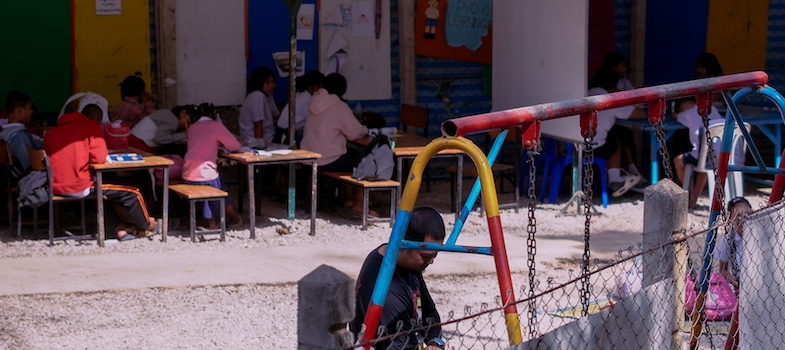Morocco: A Nexus of Islamic Scholarship and Arabic Linguistic Mastery
Morocco offers a rich environment for studying Arabic and the Quran, attracting students globally due to its vibrant culture and intellectual heritage . The country's deep-rooted commitment to preserving the Quran makes it an excellent destination for memorization and study . Arabic Language Institutes Several institutions across Morocco specialize in teaching Arabic to non-Arabic speakers, particularly English speakers. Fez, known for its intellectual history, hosts prominent schools like the Arabic Language Institute in Fez (ALIF) . ALIF, established over 30 years ago, offers a well-developed 7-level program focused on Modern Standard Arabic (MSA), also known as Fusha . The curriculum often utilizes the Al-Kitab series, commonly used in Western universities, though colloquial sections are typically omitted . Instruction is primarily in Arabic, with English used to varying degrees depending on the level and teacher . Classes are generally small, averaging 4-6 students, though this can increase to 10-12 during summer . ALIF emphasizes a holistic approach, developing speaking, reading, writing, and listening skills . While ALIF is noted for its organization and good teachers, it can be relatively expensive, though still more affordable than many North American options . Other recognized language schools in Morocco include Subus-Asalam Center, Qalam wa Lawh, INLAC, CLC, Ibn Ghazi, and Arabaphon . For those seeking to learn Arabic for religious texts and conversation, and who can already read Quranic Arabic fluently, institutions often conduct placement tests to determine the appropriate starting level . A foundational period of 6-8 months is often suggested to achieve a good grasp of the language . Quran Studies Morocco's unique environment, where a juz (1/30th) of the Quran is read congregationally in mosques daily, fosters a strong connection to the holy book . For Quran memorization (Hifz), traditional Moroccan madrassahs are the primary option, often employing pens and tablets . Enrollment in these schools typically involves showing up in person, as online processes are rare, and an entrance exam might be required . Tuition is usually free or involves a small fee . Examples of such madrassahs include Masjid Hafsa in Fez and Madrassa Imam Nafi' near Rachidia . For improving recitation and studying tajweed (rules of Quranic recitation), Dar-al-Quran schools are widely available in every neighborhood . These institutes allow individuals to drop in and recite to a teacher, with affordable tuition, often around 100 Dhs ($10) per semester . Many Dar-al-Quran centers are women-friendly, with some exclusively for women or offering specific hours for female students . Madrassah Sharif al Wazzani is noted as a girls' school for Quranic studies . The University of al-Qarawiyyin in Fez, founded in 859 A.D., is considered the world's oldest operating degree-granting university and remains a significant center for Islamic intellectual life . While it primarily focuses on traditional Islamic sciences, foreign students can often audit classes . Formal enrollment in al-Qarawiyyin typically requires complete memorization of the Quran and basic Islamic texts, and fluency in Arabic is assumed . Housing and Food Various housing options are available for students in Morocco. Homestays with local families, often arranged by host institutions, can cost between $80-$100/week with meals included . ALIF also offers a co-ed residence villa across from the institute, providing amenities at approximately $300-$350/month, though prices may increase in summer . For long-term stays, finding an apartment is common, with prices ranging from $300-$600/month depending on location and amenities . Food in Morocco is generally inexpensive, especially when purchasing from non-tourist areas and cooking at home . A budget of 50 Dh ($6) per day is considered decent for eating out . Educational Context and Challenges Morocco's education system has a long and complex history, with traditional education centered around madrassas . While public education is compulsory and free for children aged 7-13, and 95% of school-aged children are enrolled in primary school, challenges such as high dropout rates and illiteracy persist . The system often prioritizes STEM fields, with social sciences being less emphasized . There is also a significant disparity between public and private education, with private schools often offering higher quality but reinforcing inequalities . Language diversity is another challenge, as many students from Berber-speaking homes encounter Standard Arabic for the first time in school . The Moroccan government, under King Mohammed VI, has actively promoted a "Moroccan Islam" characterized by moderation, openness, and tolerance, as an alternative to extremist ideologies . This includes reforms in religious education and increased government oversight of mosques and imams . The Mohammed VI Institute, established in 2014, trains male and female Muslim leaders ( morchidine and morchidate ) to provide spiritual guidance and promote Moroccan Islamic values . This initiative aims to enhance religious literacy, particularly among women, and counter radicalism . Despite these efforts, the effectiveness of religious education can vary significantly due to differences in resources, teacher autonomy, and curricula across regions and institutions . Salafist movements, while often integrated into political life through parties like the PJD, sometimes maintain ideological differences with the monarchy's vision of Moroccan Islam . The government's attempts to control religious affairs have, at times, led some Moroccans to seek religious guidance from external sources, including the internet . Conclusion Morocco provides a comprehensive and diverse landscape for those seeking to study Arabic and the Quran, ranging from established language institutes to traditional madrassahs and Dar-al-Quran centers . The country's historical commitment to Islamic scholarship, exemplified by institutions like al-Qarawiyyin University, continues to shape its educational offerings . While the educational system faces challenges related to access, quality, and ideological diversity, ongoing reforms and initiatives aim to promote a moderate and tolerant "Moroccan Islam" and strengthen the country's role as an "educator of the faithful" .
